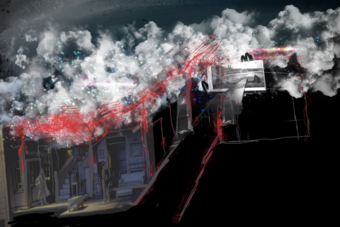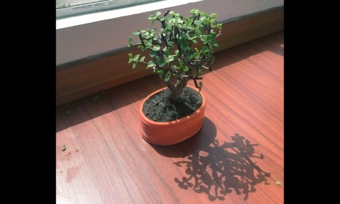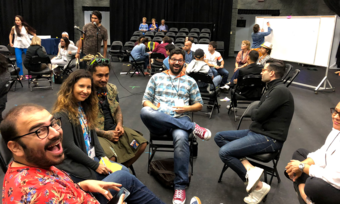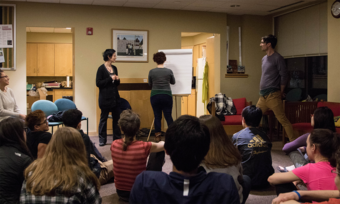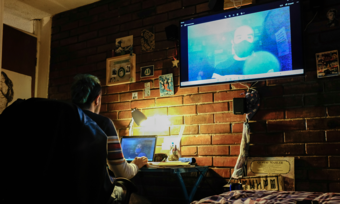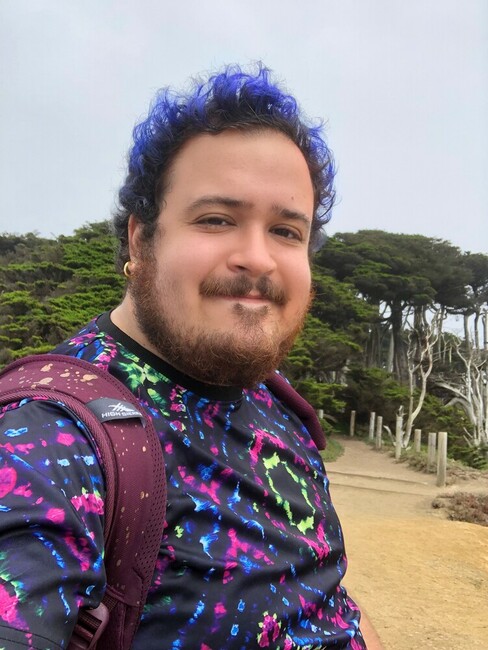
Carl(os) Roa [they/them] is an interdisciplinary artist and storyteller, juicy Colombian bear, and effusive Miami transplant.
A proud alumni of the Headlong Performance Institute, (os)’ work explores the marginalized within the marginalized, and alternative communities living alternative lives. Taking cues from theatre, community organizing, dystopian novels, queer digital realms, anime, third culture kids, the kink scene, transformative justice, and interactive media, all of these influences serve to inform their work with a visual artist’s sensibility.
They’ve worked with numerous artistic organizations in Philadelphia, including The Wilma Theater, Taller Puertorriqueño, First Person Arts, Philadelphia Artists’ Collective, Philadelphia Young Playwrights, and Swim Pony Performing Arts. They are currently the Program Manager for the Painted Bride, and a contributing writer for Artblog, HowlRound Theatre Commons, and American Theatre Magazine. In their curatorial practice, they’ve produced the Painted Bride’s Off the Wall interactive art exhibition, as well as an article series for HowlRound. They are also a graduate of the Foundry: a playwriting group affiliated with PlayPenn that is guided by the mentorship of R. Eric Thomas and LM Feldman.
In 2022, they were a finalist for the Terrance McNally Award and received an Illuminate the Arts grant from the City of Philadelphia’s Office of Arts, Culture and the Creative Economy. Currently, they are pursuing their MFA at UCLA with the support of a Graduate Opportunity Fellowship and the National Hispanic Foundation for the Arts. Follow their website: www.carlparenthesisos.com

